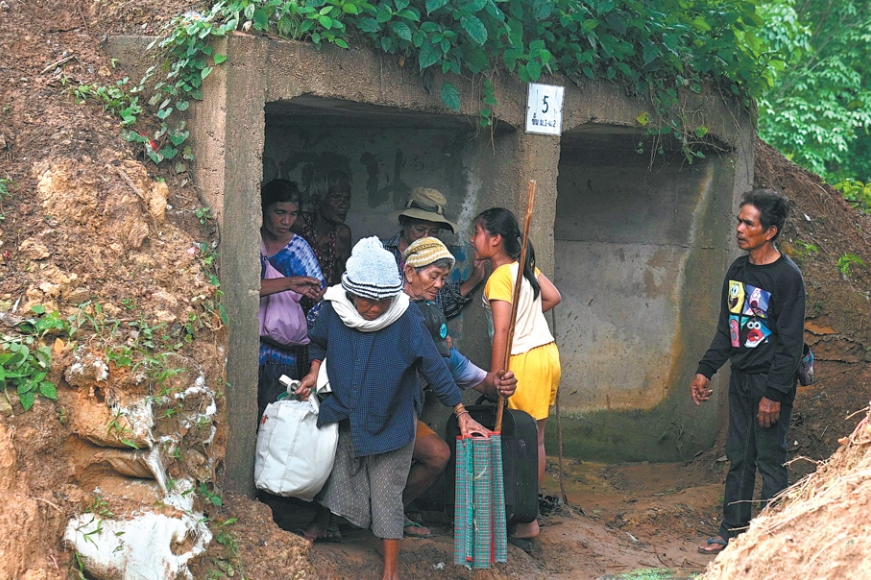Nations differ in attitude toward drone-spraying disinfectant in virus fight


During the past few months, nations have learned from each other how best to tackle the novel coronavirus pandemic.
One approach, which China has utilized, is the use of drones to disinfect large outdoor areas.
The idea calls for the repurposing of existing drones that were used to spray pesticides in agricultural settings. This time, they are spraying disinfecting chemicals in public areas and over vehicles that are traveling under essential circumstances.
As you no doubt have heard countless times over numerous news platforms, the novel coronavirus is mainly spread through respiratory droplets, and can also be spread when people touch contaminated surfaces. It is still unclear just how long the virus can live on surfaces, but initial reports suggest it can survive on metals for longer than 24 hours, and for less time on plastic and fabrics.
Justin Gong, co-founder of XAG, an agricultural company specializing in drones said in a statement: "Compared with hand spraying, drone spraying has many advantages in terms of efficiency, and consistency. Drone spraying can be 50 times more efficient than people spraying."
India has welcomed aerial spraying. There, villagers had resorted to making homemade plant-based disinfectant and splashing it on the streets.
Europe, so far, however, has avoided the tactic, where there is scientific debate about whether the procedure is effective.
In the UK, the Department of Health and Social Care says there are no plans to use drones to disinfect large outdoor areas.
A spokesman told the BBC that "the expert advice is that disinfecting outdoor spaces would not be an effective use of resources".
"We want to focus our efforts and resources on measures which have been recommended by scientific experts to have the most benefit in protecting the NHS and saving lives," the spokesman said.
The fact that it is likely that the virus cannot survive on outside surfaces for long, coupled with the fact that the UK, alongside many other European countries, is in lockdown, may play a part in this reasoning.
Ultra Violet rays, which are common outdoors courtesy of the sun, also play a role in destroying the virus by attacking RNA and DNA base molecules.
While studies on the novel coronavirus-caused COVID-19 specifically responding to UV rays have not been extensive, many studies on other types of coronavirus, such as MERS and SARS, indicate that this could be the case.
It is argued that drone-spraying is at the mercy of outdoor factors such as the wind, which may blow the disinfectant into areas it was not meant to be. However, supporters say one drone can cover an area that 50 workers might cover by hand, and that the results could be worth it, especially in a lockdown situation, where unsuspecting individuals are unlikely to be caught outside unaware and sprayed unintentionally.
The jury is still out internationally on whether drones may be helpful or not, but experts are increasingly stating that doing something may be better than doing nothing at all.
History will tell whether drones were a useful weapon in the arsenal against the global pandemic.
In this era, where the pandemic has shown just how interconnected we all are, with a virus that has no concept of borders or nationality, it is vital that this dialogue continues to remain open and clear in the international community, so we may not only face this threat together, but protect each other too.

































